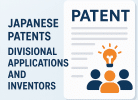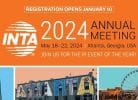The Supreme Court of Japan made a historic decision on Product-By-Process (PBP) claims on June 5, 2015 (Case Nos. Heisei 24 (Ju) 2658 and Heisei 24 (Ju) 2658.)
Prior to the Supreme Court’s decision, the Grand Panel of Intellectual Property High Court had concluded, against a plaintiff’s claim, that except for cases where at the time of filing the patent application it was difficult to identify a product by its composition or characteristics, the scope of the claims should be understood to be limited to the product produced by the method described in the claims.
The plaintiff appealed this judgment to the Supreme Court of Japan.
On June 5, 2015, the Supreme Court reversed the decision of the IPHC and sent the case back to the IPHC. The Supreme Court decided that the scope of a patented invention must be taken to cover products having the same composition or characteristics as those of a product manufactured by a different process, even if the patented invention’s claim recites the manufacturing process of the product.
This Supreme Court’s decision means that even if an infringer’s product is produced according to a method unlike the one described in a patented PBP claims, the infringer’s product should be considered to fall within the scope of the PBP claims if the structure and characteristics of the infringer’s product are the same as those of the PBP claim. In short, the scope of a PBP claims covers any product that is the same as the one described in the PBP claims but is produced according to a different method.
The decision of the Supreme Court seems beneficial to the appellant; however, because the scope of the claims is now understood to be wider than before, there is now an increased chance of patents getting invalidated. This also means that patent applications with PBP claims will face more difficulty in getting patented.
In response to this decision by the Supreme Court, the Japan Patent Office (JPO) announced on June 11, 2015 that the JPO will review and revise the examination guidelines. The JPO also announced that until about the beginning of July, they will not examine any patent applications or pending appeals that are related to the Supreme Court’s case.






